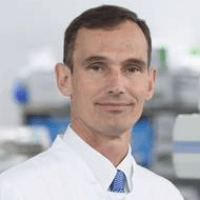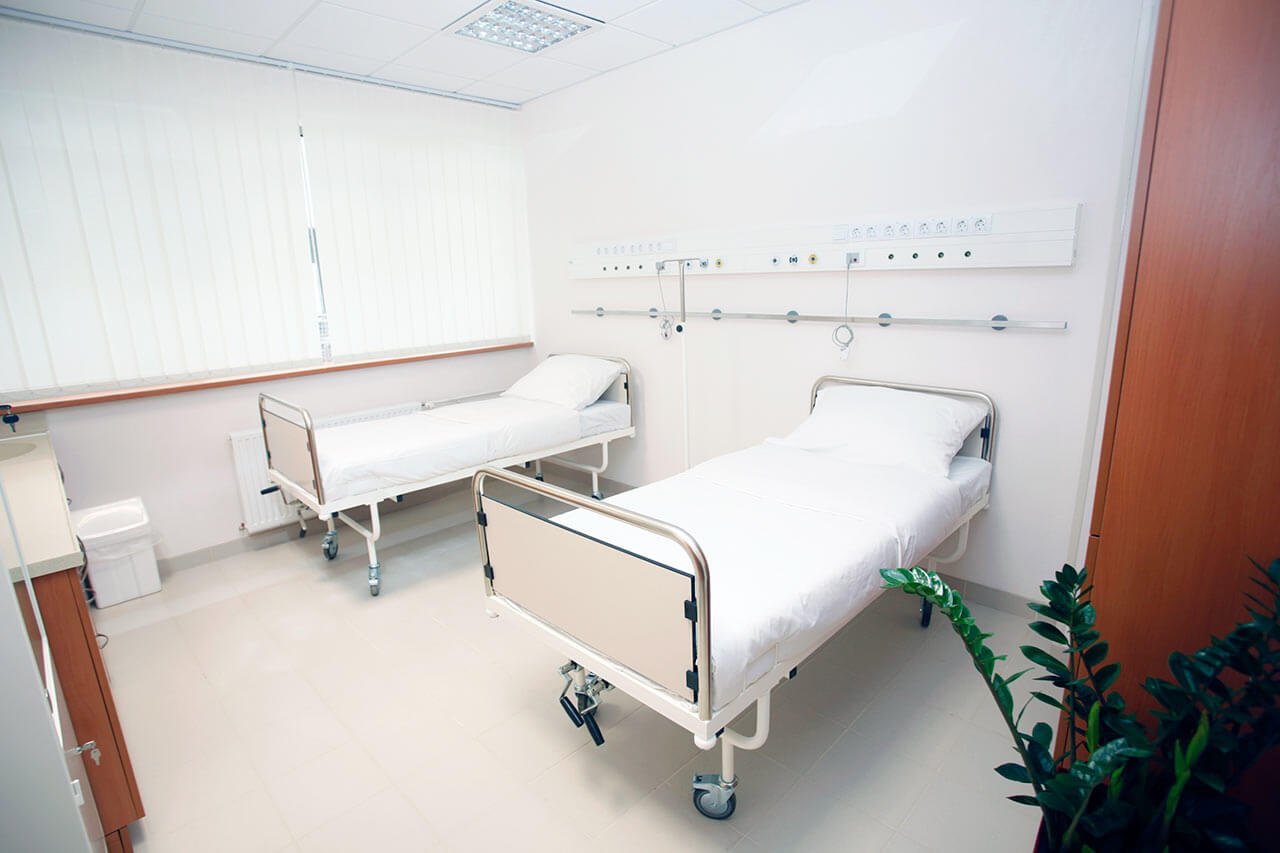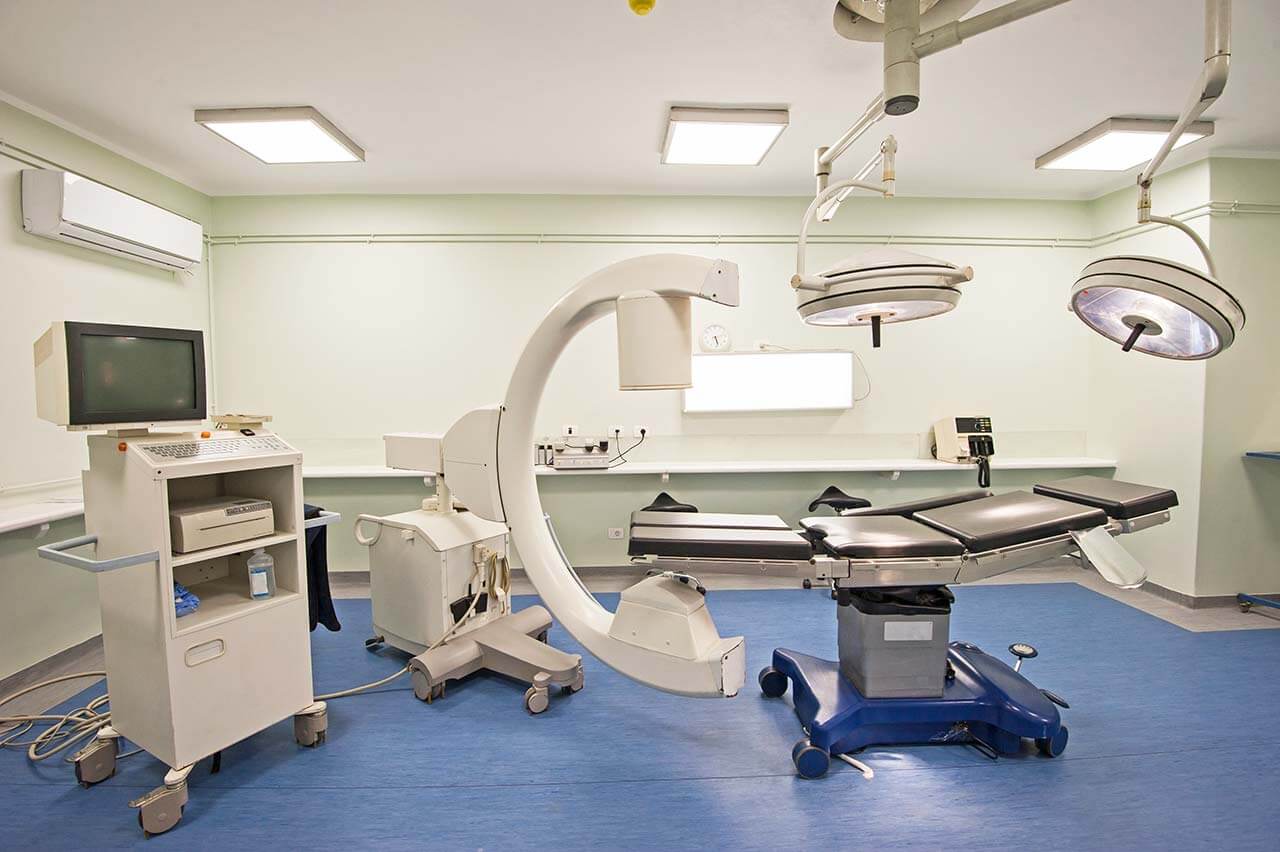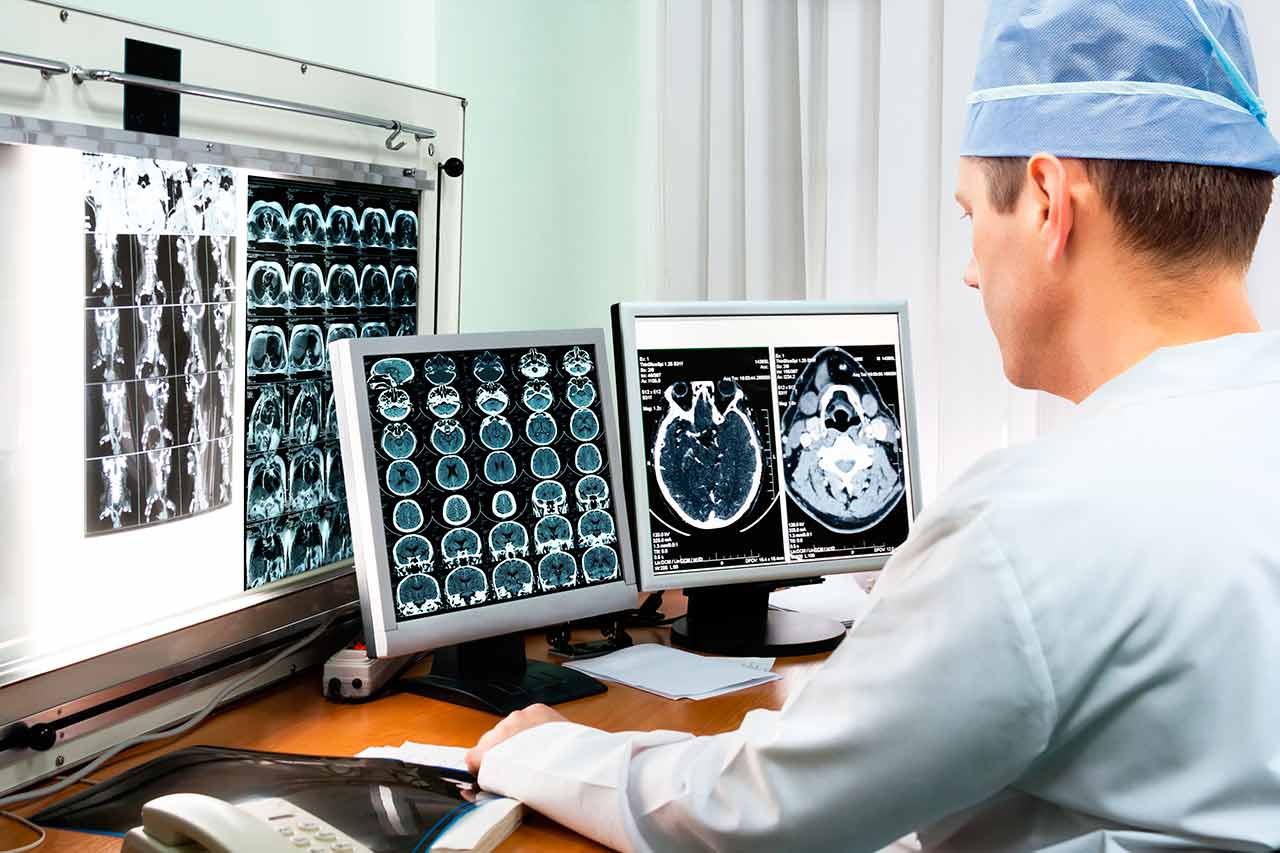
The program includes:
- Initial presentation in the clinic
- clinical history taking
- review of medical records
- physical examination
- laboratory tests:
- complete blood count
- biochemical analysis of blood
- mineral metabolism analysis (Na, K, Ca, Mg)
- lipid metabolism (HDL/LDL, cholesterol,
triglycerides Lip(a), homocysteine) - inflammation indicators (CRP, ESR)
- indicators blood coagulation
- blood gas analysis
- chest x-ray examination
- holter monitoring (24h)
- measurement of arterial blood pressure
- electrocardiogram (ECG)
- pulmonary function test
- echocardiography
- doppler echocardiography
- high-resolution computed tomography (HR-CT)/MRI (on indication 950/1200€)
- CT angiography (on indication 1350€)
- nursing services
- consultation of related specialists
- treatment by chief physician and all leading experts
- explanation of individual treatment plan
(the cost of medicines is not included)
Required documents
- Medical records
- ECG (if available)
- Echocardiography (if available)
- Coronary angiography (if available)
Service
You may also book:
 BookingHealth Price from:
BookingHealth Price from:
About the department
The Department of Cardiology is part of the Center for Heart and Vascular Medicine at the University Hospital Muenster (UHM). The patients with all diseases of the heart, circulatory and vascular system are treated here. The range of treatments covers diagnostic and therapeutic methods of cardiology and angiology, including interventional catheter treatment options for heart and vessels. The chief physician of the Department is Prof. Dr. med. Holger Reinecke.
The Department of Cardiology focuses on interventional catheterization on heart (PCI) and peripheral vessels (PTA); diagnosis and treatment of congenital heart diseases in adults, acquired diseases of the heart valves and all forms of arrhythmias (electrophysiological diagnosis, catheter ablation, pacemaker and defibrillator implantation). The Department has three-dimensional display systems and electrophysiological measuring systems for catheter ablation in case of arrhythmias.
Another important focus is the treatment of heart failure in case of both acute and chronic failure of the heart pumping function. In addition to an optimized medication, there is offered electrostimulation as well as the use of the cardiopulmonary bypass and heart transplant, including a preparation and follow-up program that is realized in a close cooperation with the Department of Cardiothoracic and Vascular Surgery at the University Hospital Muenster.
According to the Focus magazine rating of 2017, the Department of Cardiology at the University Hospital Muenster ranks among the top German departments specializing in the treatment of cardiovascular diseases!
Since this field is quite complicated, the Department of Cardiology under the direction of Prof. Dr. med. Johannes Waltenberger unites different departments, sections and institutes under the same roof:
- Department of Cardiology: It covers the whole field of coronary artery diseases and heart failure (except the resynchronization therapy) and heart transplant. This also includes catheter diagnosis and treatment, internal interventional medicine, non-invasive imaging, ECG Unit, counseling on cardiology and emergency medical care.
- Department of Congenital (EMAH) and Acquired Heart Defects: It provides diagnosis and treatment of congenital heart diseases, acquired valvular heart diseases, rare structural heart diseases, including interventional treatment of heart valve diseases.
- Section of Rhythmology: It provides diagnosis and treatment of cardiac arrhythmia, including electrophysiology and electrosurgery (pacemaker / defibrillator placement / resynchronization therapy).
- Section of Angiology: It provides diagnosis and treatment of angiological diseases.
- Institute of Genetics of Heart Diseases: It provides diagnosis of genetic causes for heart diseases in the family, especially cardiac arrhythmia.
Curriculum vitae
Since February 2018, Head of the Department of Cardiology I (Coronary Heart Disease, Heart Failure and Angiology), University Hospital Münster
Medical Education
- Board certification in Internal Medicine
- Priorities: Angiology, Cardiology
- Other qualifications: Intensive-Care Medicine
Treatment Specialisations
- Arterial circulatory disorders
- Venous diseases
- Vascular inflammations
Research interests
- Peripheral arterial occlusive disease and critical limb ischemia
- "Heart, Vessels and Kidney"
Memberships
- German Society of Angiology - Society of Vascular Medicine (DGA)
- German Society of Cardiology - Cardiovascular Research (DGK)
- German Interdisciplinary Association for Intensive and Emergency Medicine (DIVI)
- German Society of Internal Medicine (DGIM)
Photo of the doctor: (c) Universitätsklinikum Münster
About hospital
According to the Focus magazine, the University Hospital Muenster ranks among the top German hospitals!
The hospital belongs to the most prestigious medical institutions in Germany. The hospital is distinguished by a high professionalism of its doctors, state-of-the-art technological equipment and the availability of the most advanced diagnostic and therapeutic capabilities ensuring the first-class medical services. The hospital integrates more than 30 specialized departments, as well as numerous institutes and centers, thus representing all the specialties of modern medicine. The hospital treats more than 64,000 inpatients and 500,000 outpatients every year, which is an indisputable evidence of the highest quality of medical services.
The medical team of the hospital, consisting of more than 10,000 employers, is committed to preserving the physical health of patients, providing them with psychological support and compassionate attitude throughout the entire therapeutic process.
The hospital has succeeded in all specialties of medicine, however, main areas of its specialization include oncology, treatment of cardiovascular, neurological diseases, transplant medicine, psychiatry and psychosomatics, pediatrics with a special focus on rare diseases in children, traumatology, orthopedics, prenatal medicine, and reproductive medicine. In addition, key importance is given to scientific research and training of medical students, so that the specialists of the hospital make a momentous contribution to the development of medicine as a whole.
Photo: (с) depositphotos
Accommodation in hospital
Patients rooms
The patients of the University Hospital Muenster live in single or double rooms. The rooms are made in bright colors and modern design. Each room has an ensuite bathroom with shower and toilet. The standard room includes an automatically adjustable bed, a bedside table, a table and chairs for receiving visitors, a telephone and a TV. The hospital offers access to the Internet. If desired, the patient can also stay in the enhanced-comfort room.
Meals and Menus
The patients of the hospital are offered a tasty and balanced three meals a day: breakfast, lunch and dinner. The menu always features diet and vegetarian dishes. If for any reason you do not eat all the food, you will be provided with an individual menu. Please inform the medical staff about your dietary preferences prior to the treatment.
Further details
Standard rooms include:
Religion
Religious services are available upon request.
Accompanying person
During the inpatient program, an accompanying person may stay with you in a room or at the hotel of your choice.
Hotel
During the outpatient program, you can live at a hotel of your choice. Managers will help you to choose the most suitable options.
The hospital offers a full range of laboratory tests (general, hormonal, tests for infections, antibodies, tumor markers, etc.), genetic tests, various modifications of ultrasound scans, CT scans, MRI and PET / CT, angiography, myelography, biopsy and other examinations. Treatment with medications, endoscopic and robotic operations, stereotaxic interventions is carried out here, modern types of radiation therapy are also used. The hospital offers patients all the necessary therapeutic techniques.
- Stereotactic radiotherapy, including intracranial one
- Thulium and holmium laser enucleation of the prostate
- HIPEC for peritoneal cancer
- Imlantation of mechanical heart support systems
- Assisted reproductive technologies
These are arthrosis and sports injuries of the joints, benign neoplasms and malignant tumors of various localizations, spinal injuries, osteoporosis, benign prostatic hyperplasia, urolithiasis, inflammatory bowel disease and other pathologies.
- Traumatology and hand surgery
- Urology
- General and abdominal surgery
- Cardiology and cardiac surgery
- Obstetrics and gynecology
The hospital's team consists of more than 10,000 highly qualified employees.






